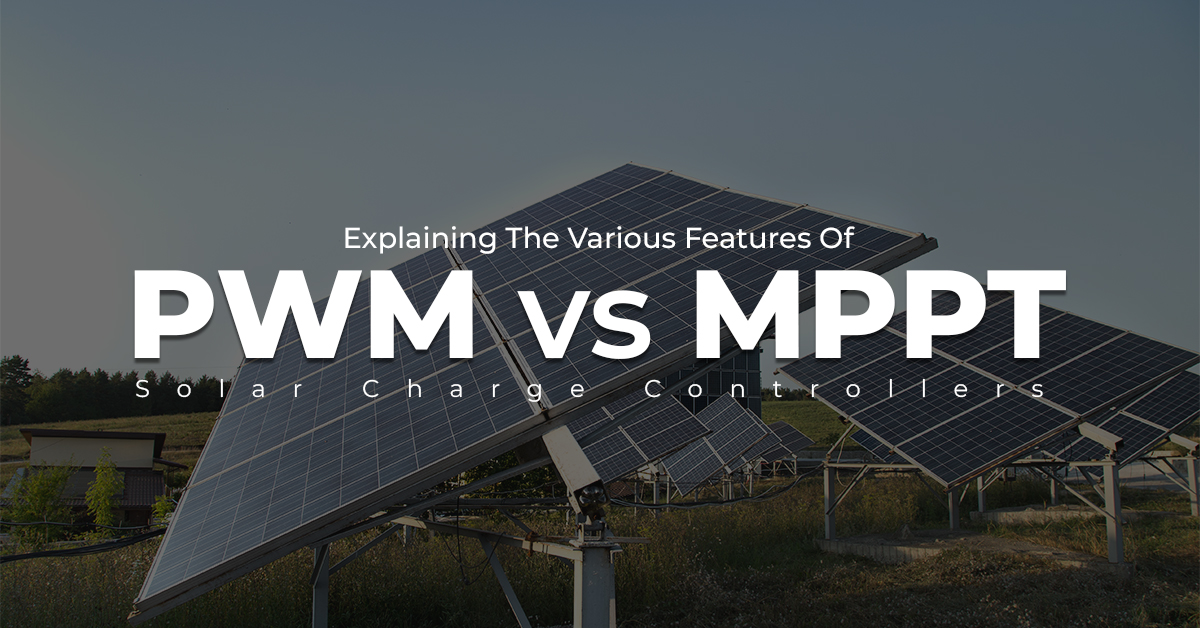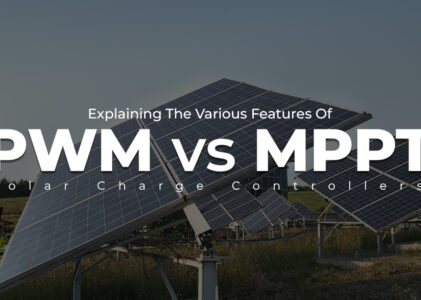In today’s world, solar energy has become an undeniable alternative option for electrical resources. Hence, choosing a suitable charge controller for the solar panels or power system is essential for excellent optimization. The most widely used technologies used by the solar panel dealer in Chennai for more significant power optimization, regularization, and solar panel enhancement are the MPPT (Maximum Power Point Tracking) and PWM (Pulse Width Modulation). In this blog, we will explore the various features of PWM and MPPT controllers to help you decide on your solar setup.
PVM & MPPT Controllers – Overview:
PWM, or Pulse Width Modulation, controllers are devices used in solar power systems to regulate the charging of batteries. These solar panel controllers efficiently manage the power flow in the system, such as from panels to batteries, by intermittent interruption in the electrical current flow. In other terms, the “Pulse Width Modulation” refers to the total power controlled by the battery delivery.
MPPT stands for Maximum Power Point Tracking. MPPT controllers are devices used in solar power systems to optimize energy conversion efficiency from solar panels to batteries. These controllers dynamically adjust the electrical operating point of the solar panels, ensuring that they operate at the maximum power point where they can generate the most power.
Voltage Regulation:
PWM Controllers:
These controllers periodically interrupt the current between the solar panels and the battery, maintaining a fixed voltage. This method can contribute to energy loss, primarily when the solar panels operate at a higher voltage than the battery.
MPPT Controllers:
MPPT controllers, on the other hand, dynamically adjust the electrical operating point of the solar panels, allowing them to extract the maximum power available. This feature ensures efficient energy harvesting, even when the solar panels have varying voltage outputs.
Energy Efficiency:
PWM Controllers:
While PWM controllers are cost-effective, MPPT controllers might be more efficient, mainly when the solar panels’ voltage differs significantly from the battery voltage.
MPPT Controllers:
MPPT controllers optimize energy conversion by constantly adjusting to the maximum power point of the solar panels. It results in a higher overall energy yield, making MPPT controllers more efficient, particularly in scenarios with fluctuating weather conditions.
System Design Flexibility:
PWM Controllers:
These controllers are suitable for smaller solar installation Chennai with fixed configurations, where the solar panel voltage closely matches the battery voltage.
MPPT Controllers:
MPPT controllers offer greater flexibility as they adapt to various solar panel configurations and voltages. It makes them ideal for larger, more complex systems with diverse environmental conditions.
Cold Weather Performance:
PWM Controllers:
In frigid temperatures, the efficiency of PWM controllers may be compromised, leading to reduced power output.
MPPT Controllers:
MPPT controllers, however, are better equipped to handle temperature variations, maintaining optimal performance even in colder climates. It is a critical factor for regions experiencing seasonal temperature fluctuations.
In the realm of solar charge controllers, the choice between PWM and MPPT depends on the specific requirements of your solar power system. A PWM controller may be sufficient if you work within budget constraints and have a smaller, fixed configuration. However, for larger systems, fluctuating environmental conditions, and a desire for maximum energy efficiency, investing in an MPPT controller could prove to be a wise decision. Hence, choose Buhin Solars, one of the best top solar companies in Chennai to understand the unique features of each controller type to get the full potential of your solar energy setup.


